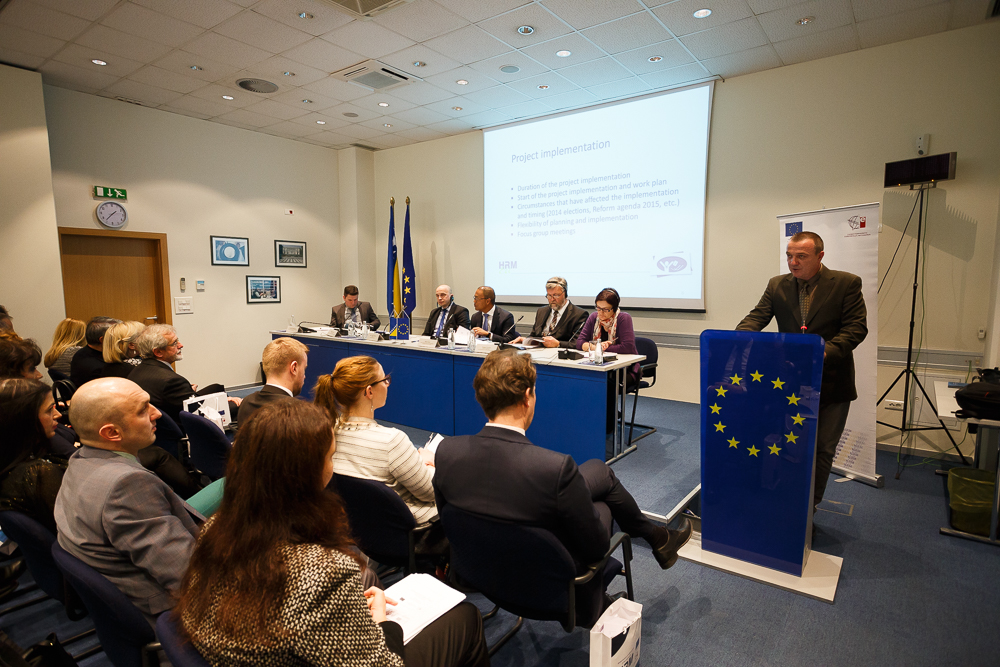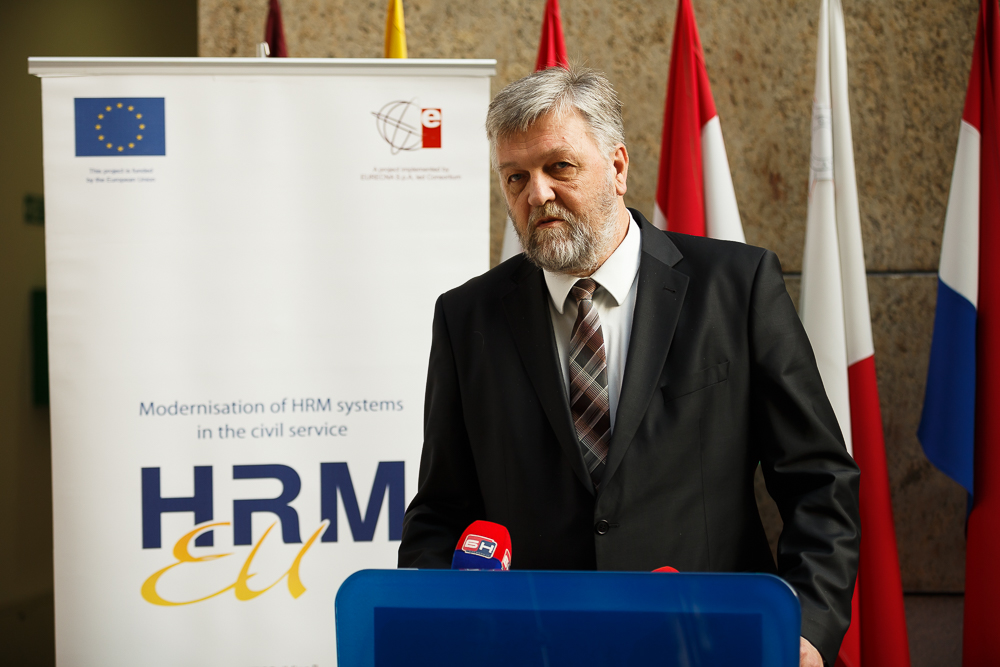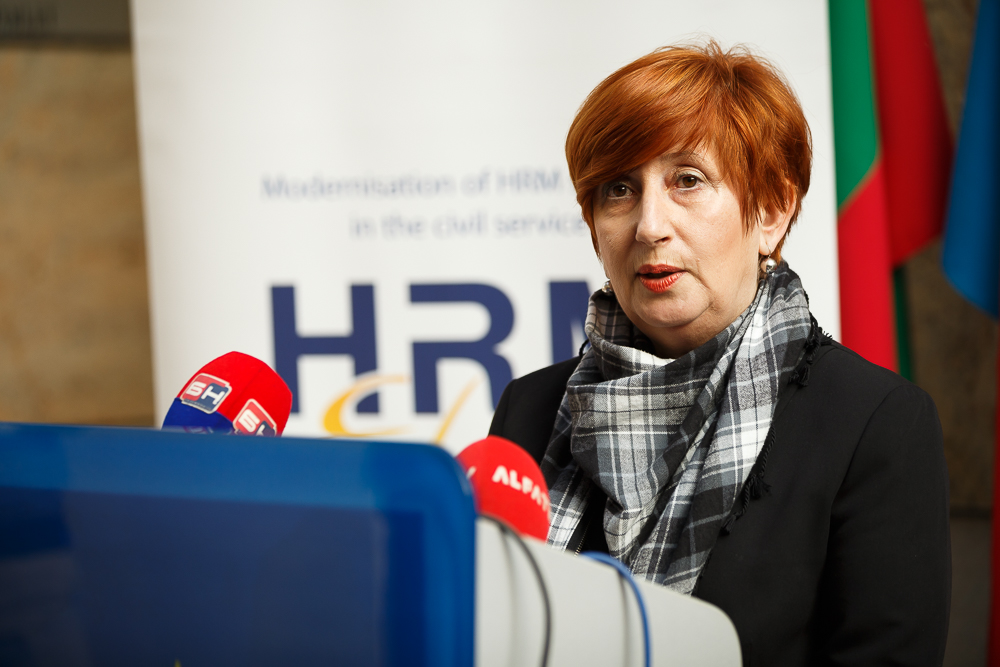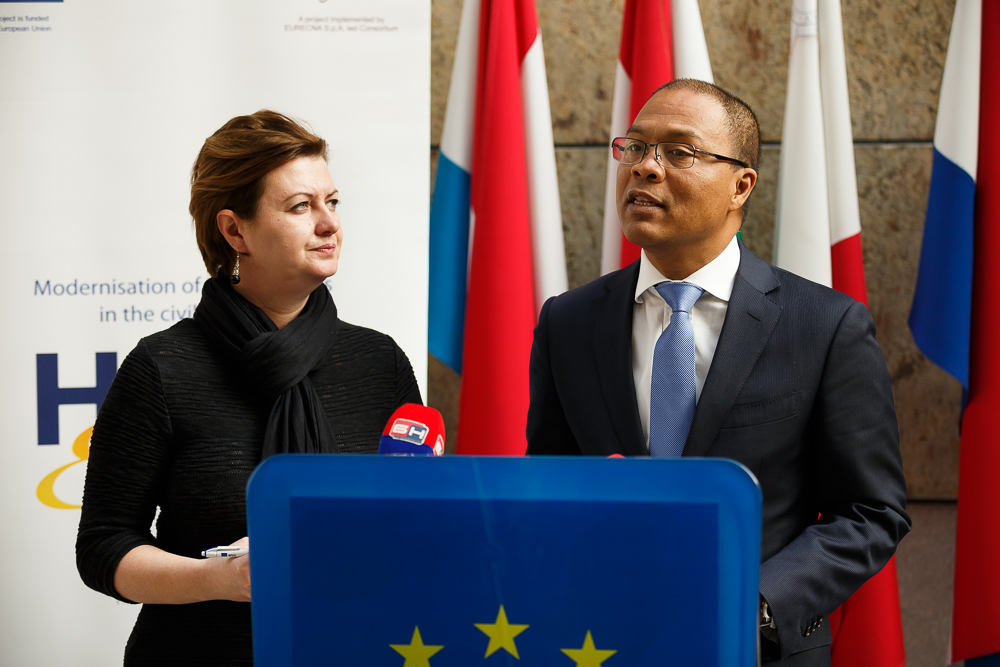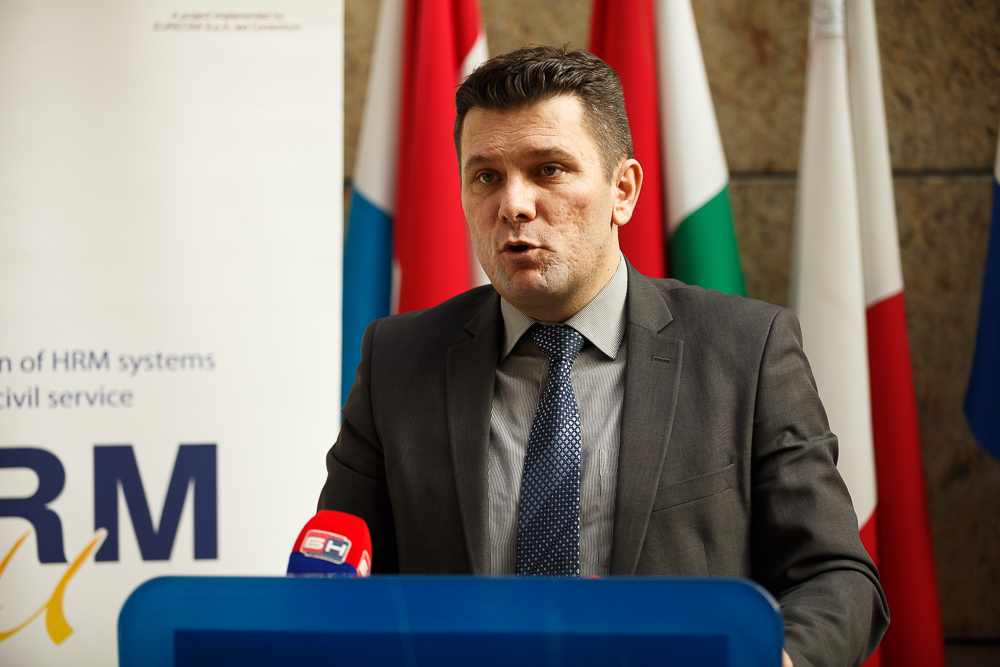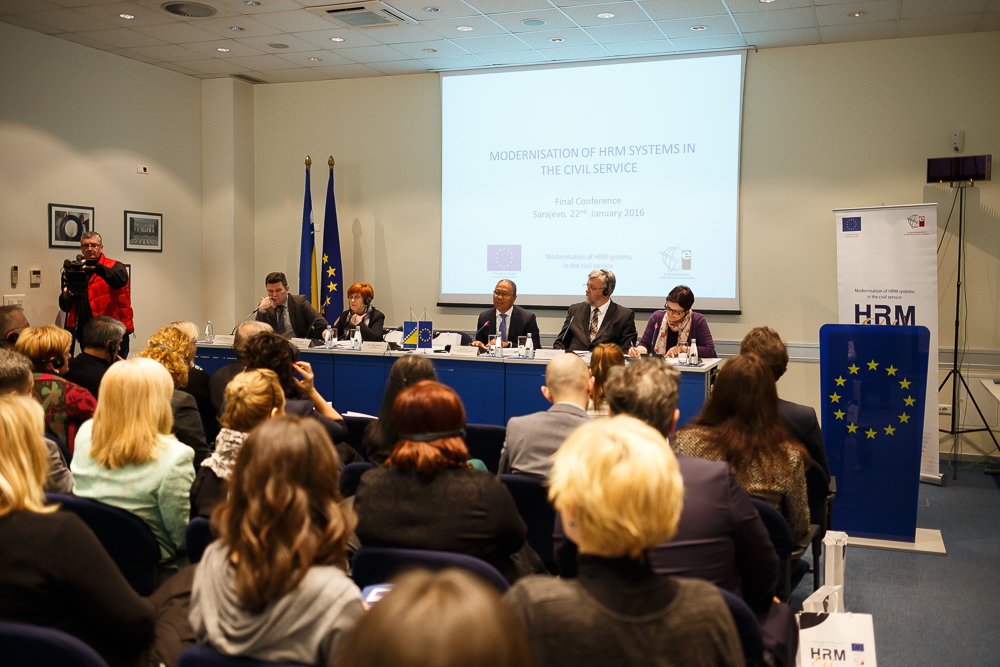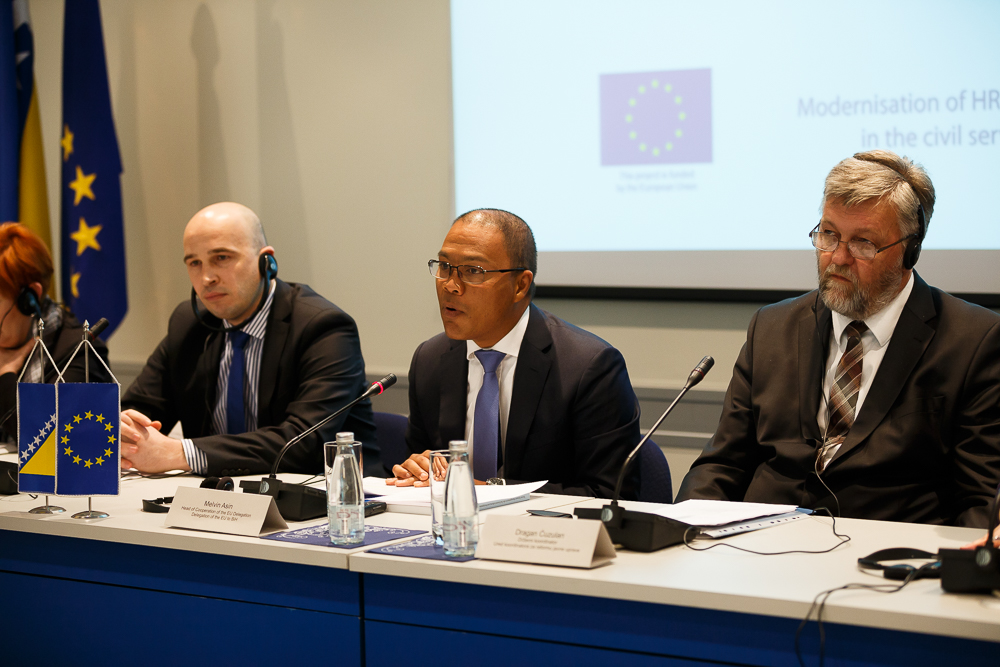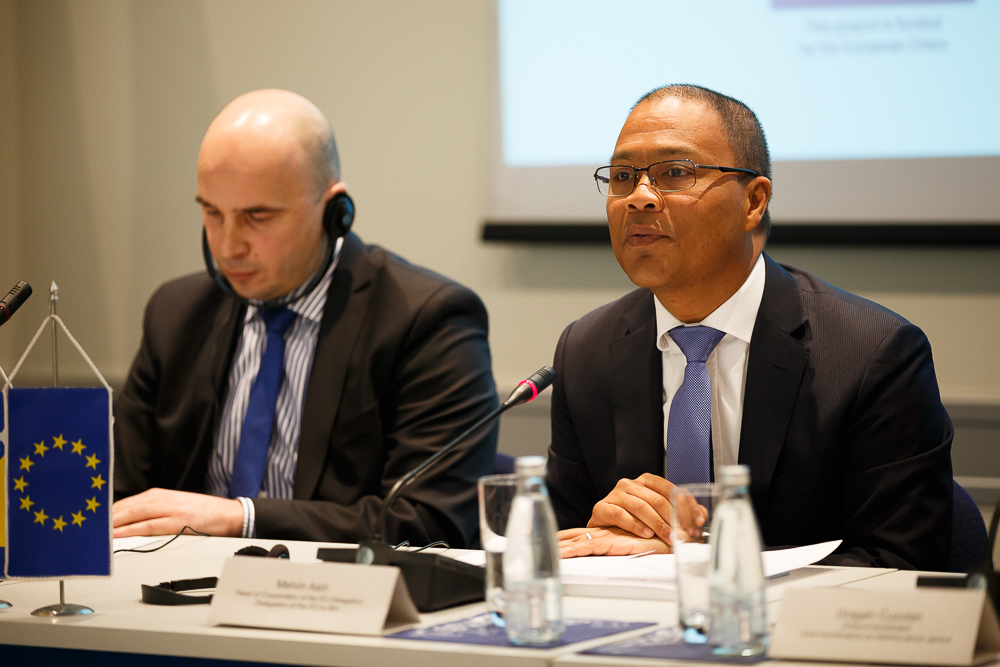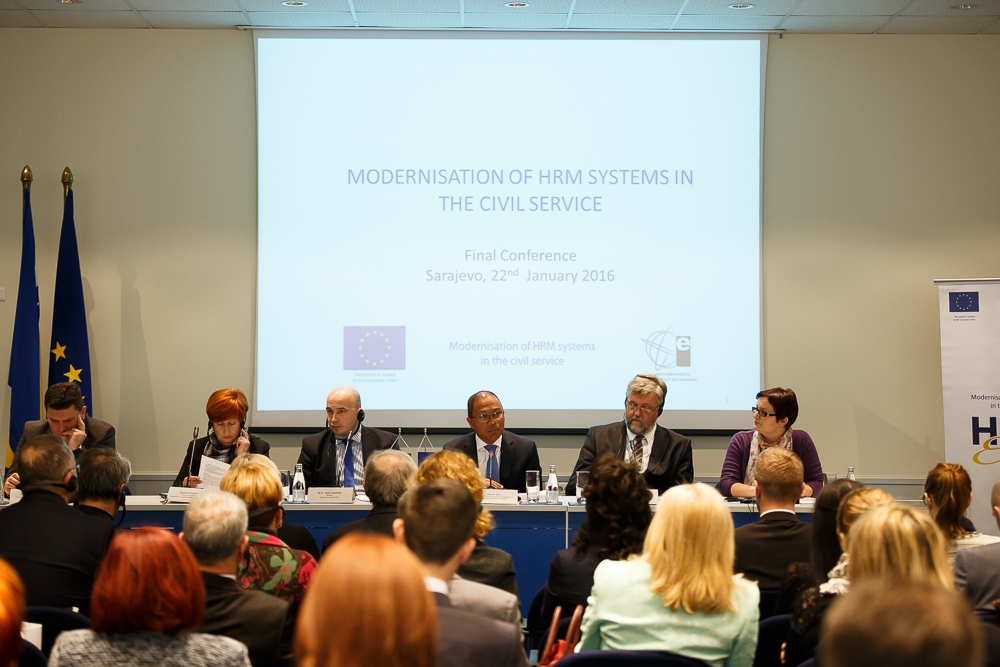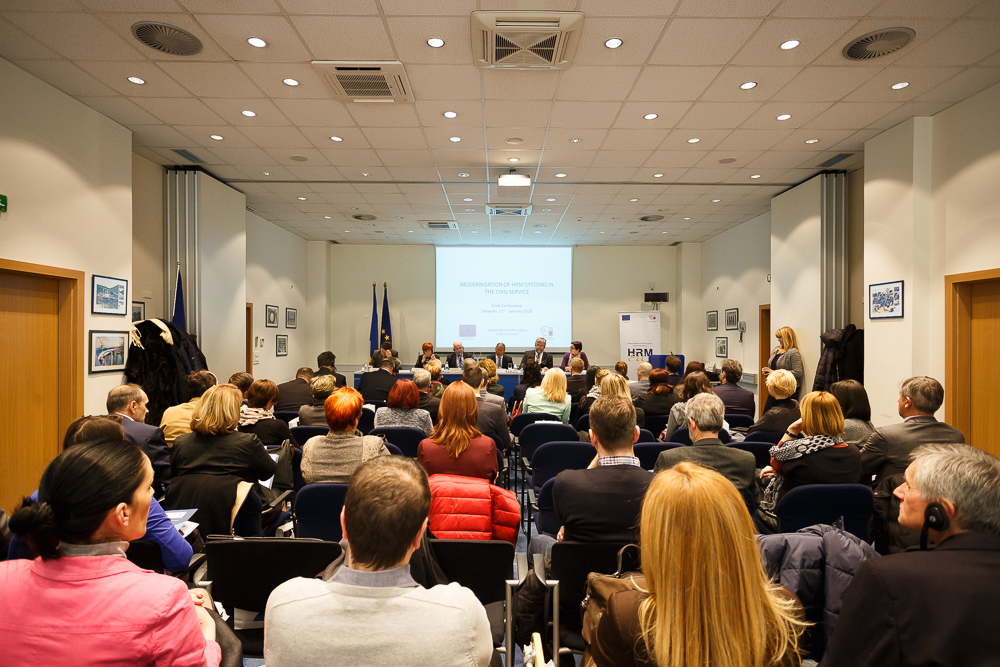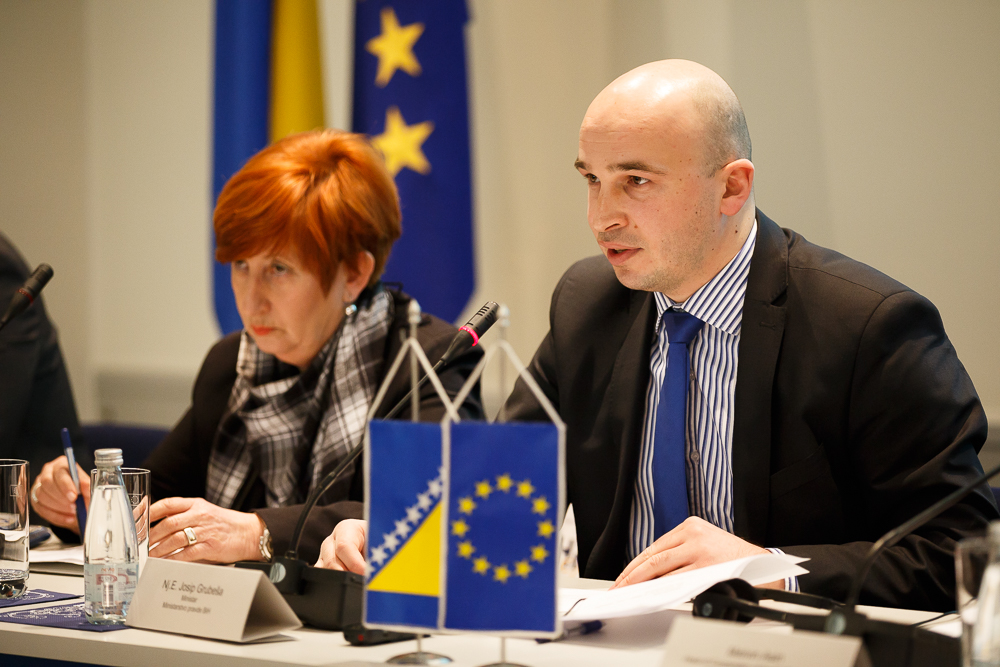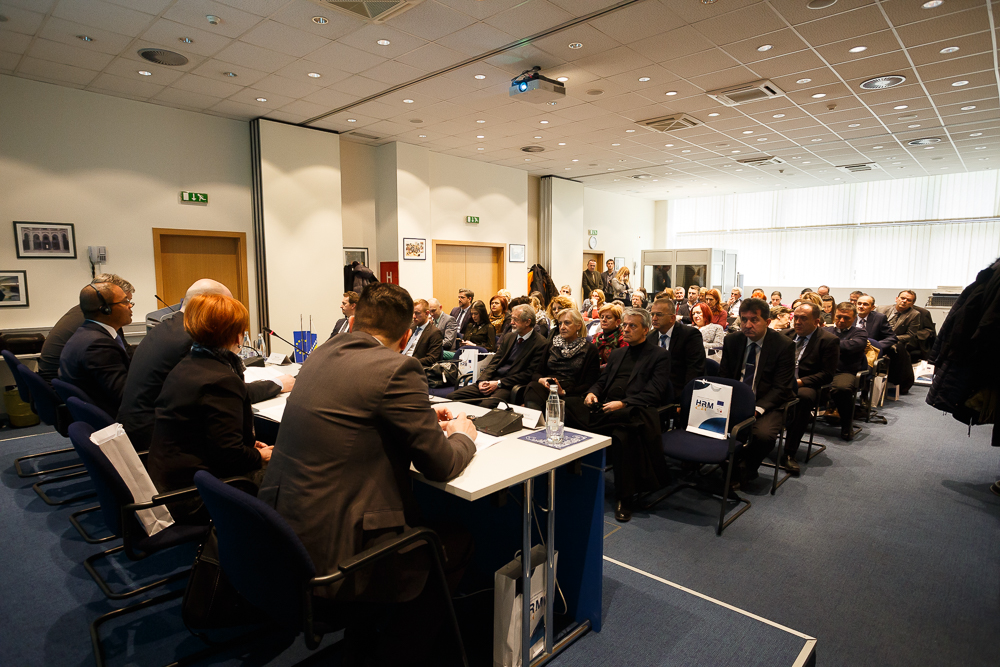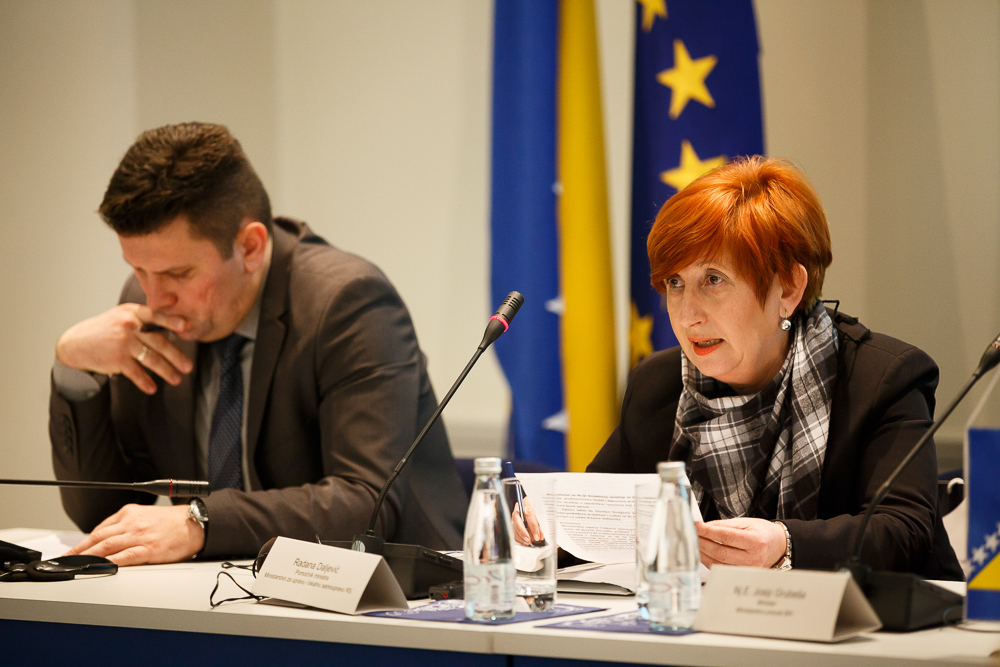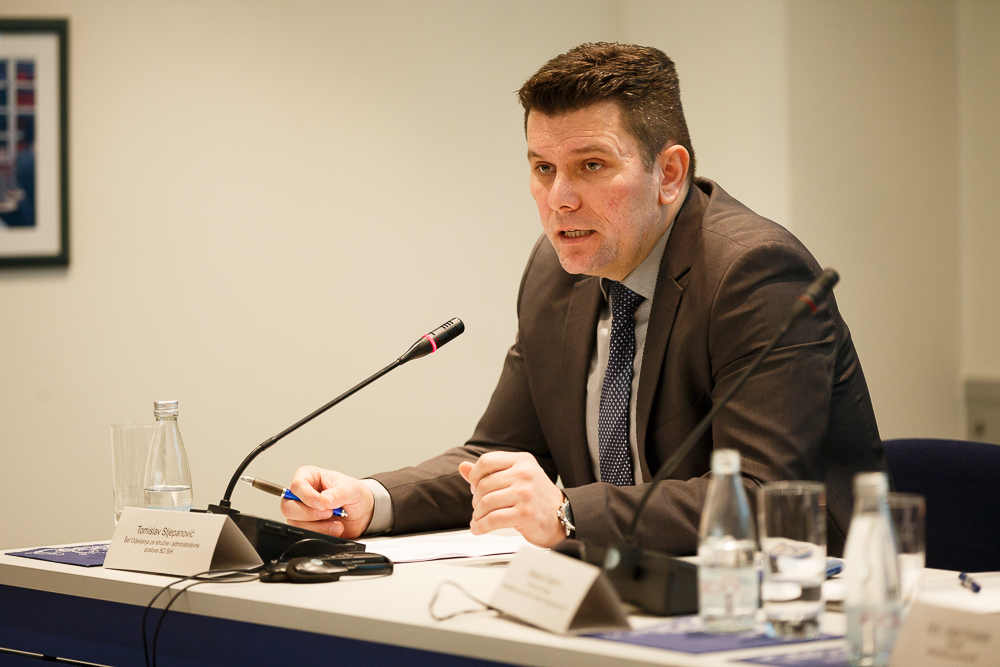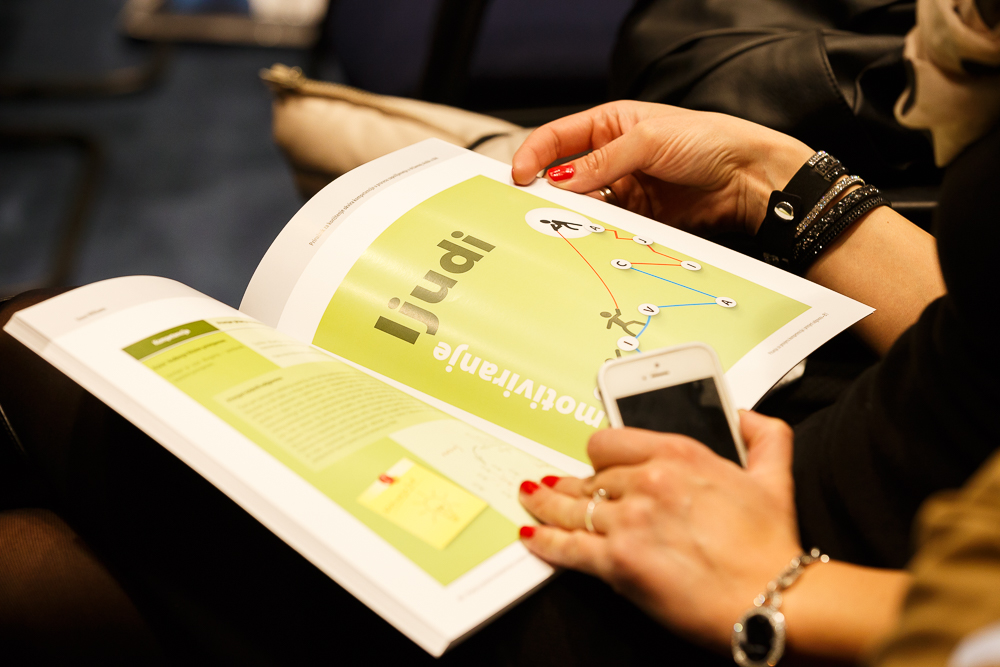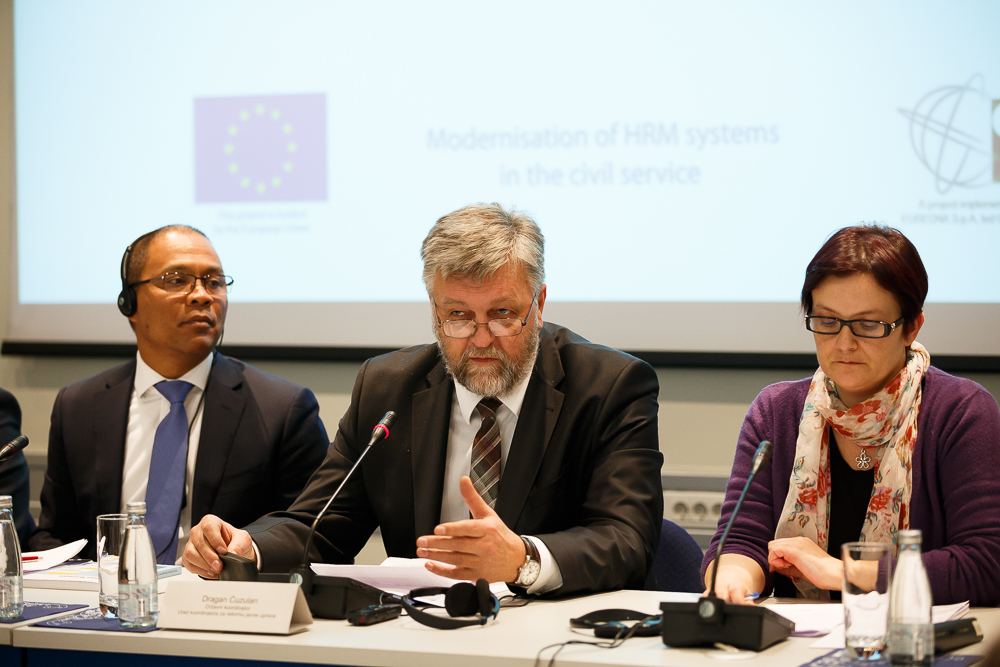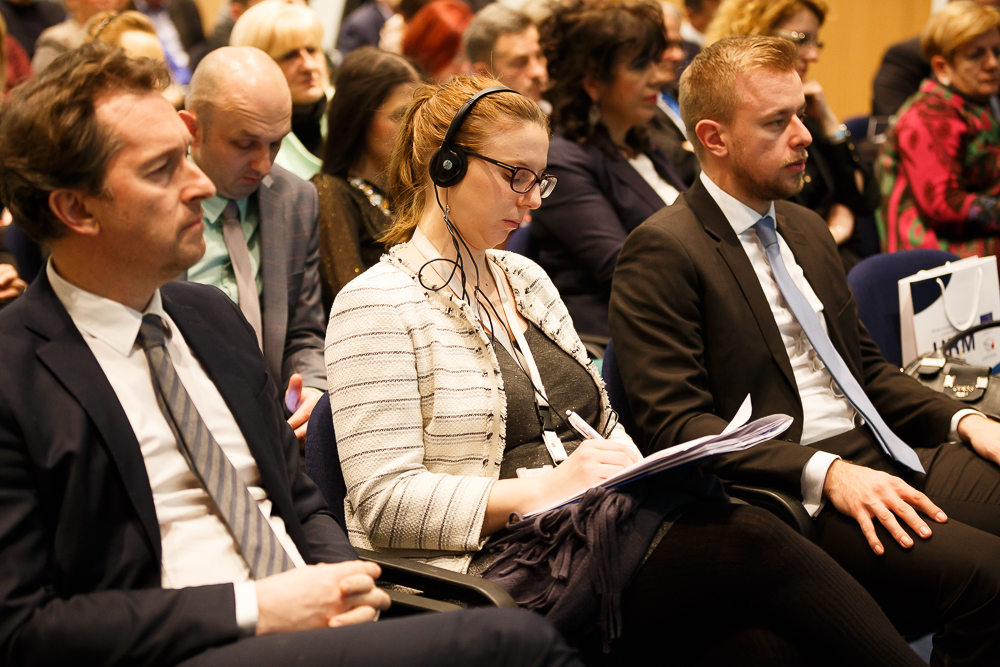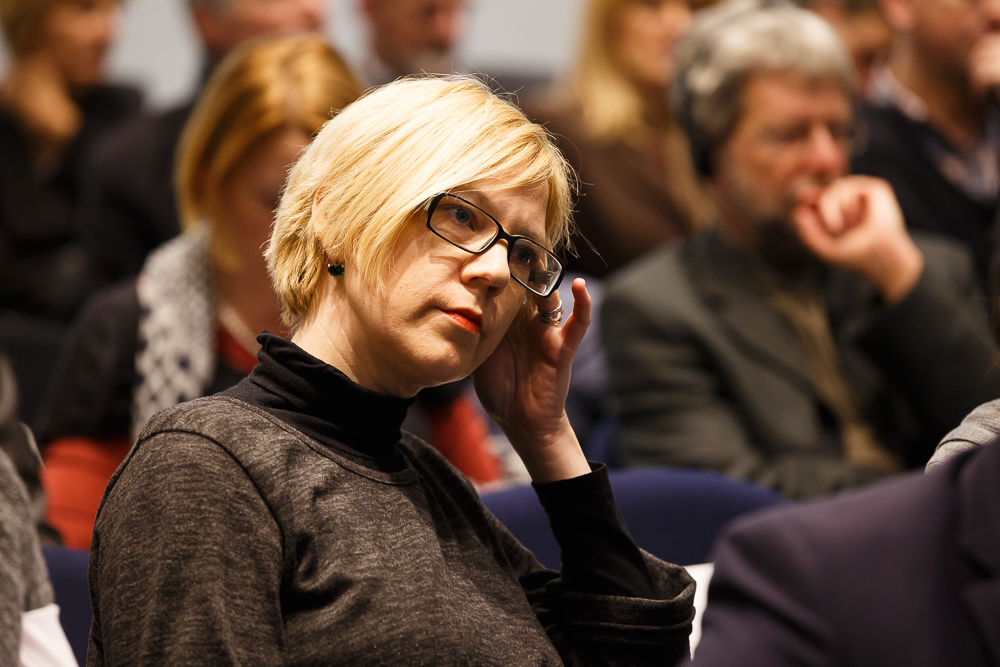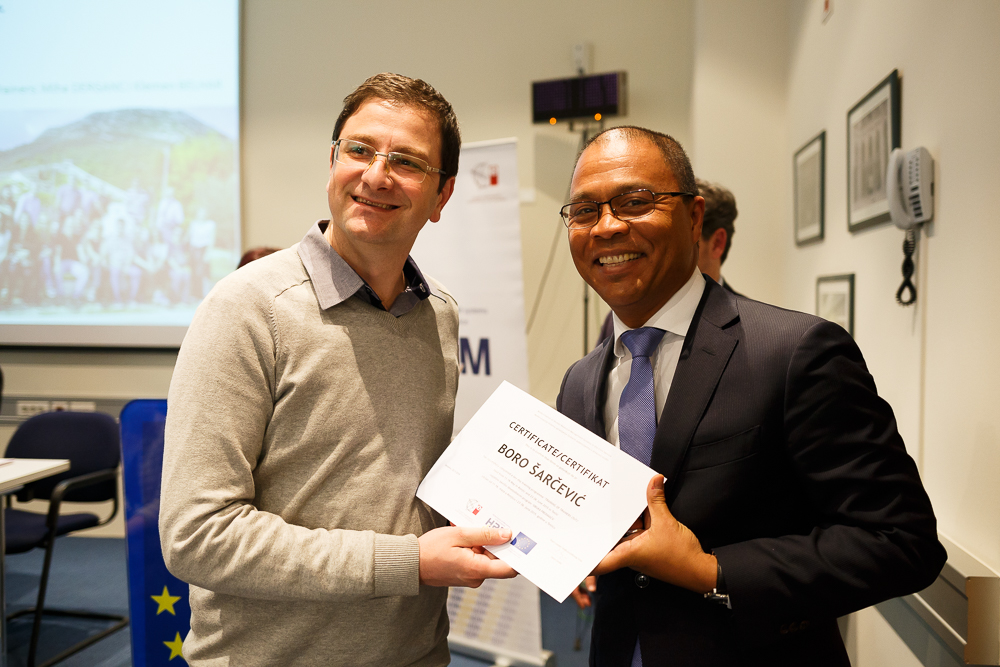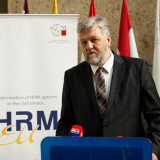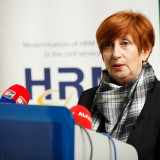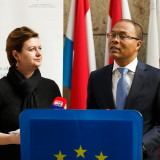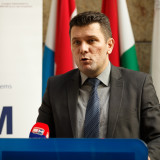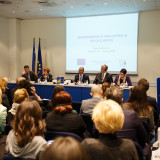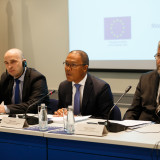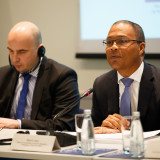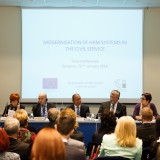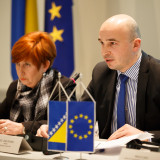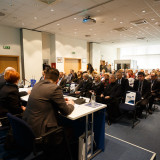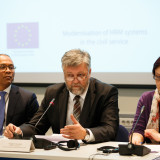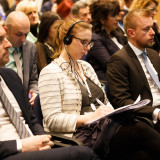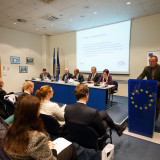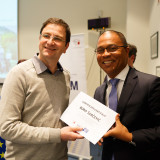The final conference of the EU funded project “Modernisation of Human Resources Management Systems in the Civil Service (EUHRM)” took place on 22 January 2016 in Sarajevo. The project contributed to the classification of jobs in the public administration, which will help authorities in the future to employ civil servants in a clear and transparent manner. In addition, the project provided a clear framework to determine the civil servants’ salaries.
“The European Union has developed high standards in the area of civil service and human resources management and it therefore seeks to see the same from any country aspiring to apply for EU membership,” said Melvin Asin, Head of Cooperation at the EU Delegation to BiH. “Adhering to EU integration criteria means applying three principles: a distinct separation between politics and administration, professional and impartial civil service and the overall strength of administrative and judiciary systems in applying and enforcing a sound legal framework,” Asin added.
He also noted the biggest challenges in this public administration reform process. “Many previous country reports concluded that fragmentation and politicization continued to hamper the establishment of a professional, accountable, transparent and efficient civil service based on merits and competence,” Asin concluded.
State Coordinator for Public Administration Reform in BiH, Dragan Ćuzulan, explained that the project did not only aim to improve the efficiency of public administration, but also hiring procedures in the public administration.
“The project has helped improve the design of new regulations about the workplace and creating human resources policies of each institution according to assessed needs. Without this reform, there will be no economic development in the country, or an efficient and transparent public administration,” Ćuzulan said.
The conference was attended by representatives of relevant ministries from state, entity and Brčko District as well as representatives of public administration. It was an opportunity to discuss future steps needed in the reform of human resource management in the civil service in BiH.
The project involved about 700 civil servants including 24 trainers that will continue to transmit the knowledge acquired during the project.
The European Union funded the project from the Instrument for Pre–Accession Assistance in the amount of 1,769,000.00 EUR. It was implemented in the course of 24 months by Eurecna S.p.A in consortium with GDSI and Đikić Consulting Services.
RELEVANT PUBLICATIONS

